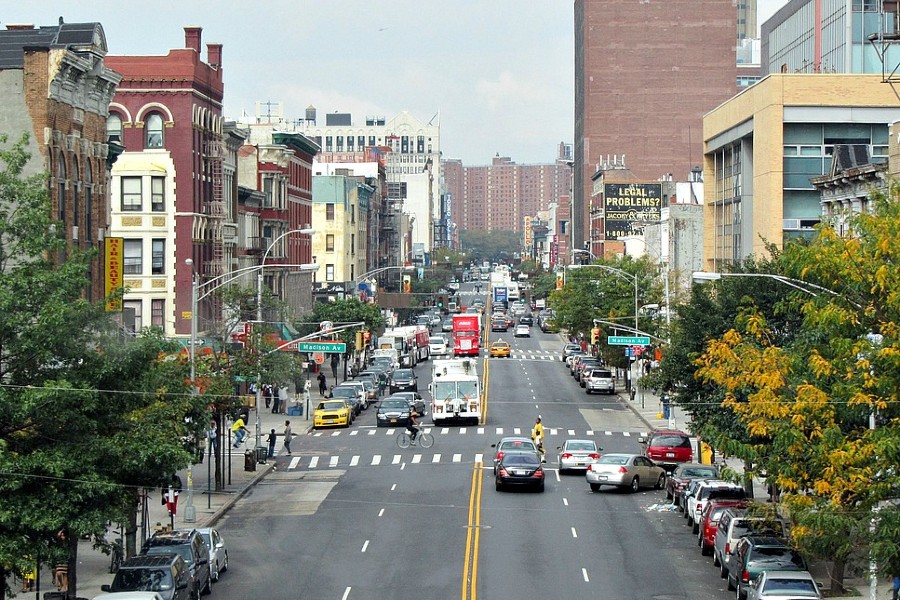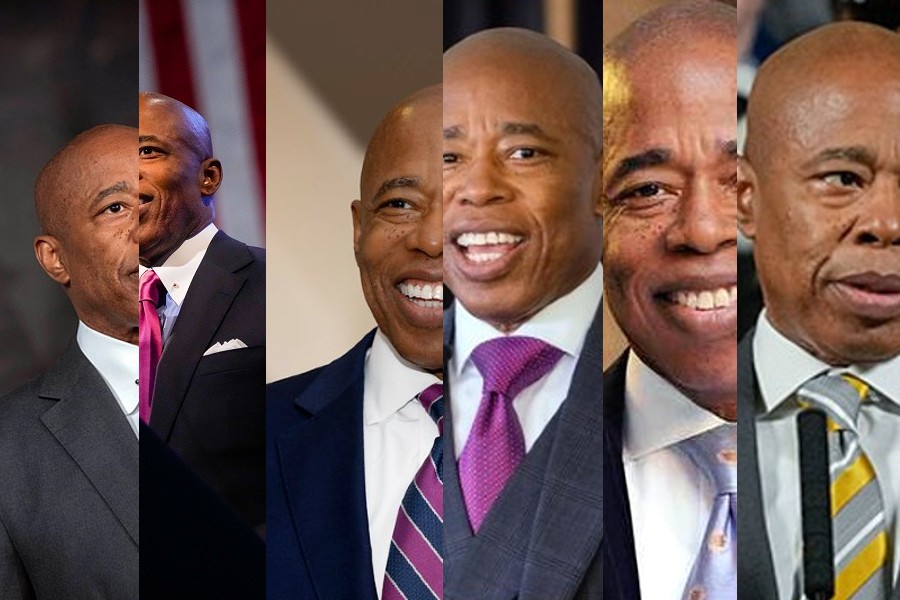
Council Member Marjorie Velázquez (D-13 Bronx), Chair of the Committee on Consumer and Worker Protection, held a public oversight hearing at New York City Hall.
The event was held on Wednesday to hear testimony from members of the public and city agencies, including the New York City Department of Consumer and Worker Protection, the Department of Sanitation, and the Department of Health and Mental Hygiene regarding the future of New York City street vendors.
Hundreds of people testified during the public oversight hearing, including street vendors, street vendor advocates, and the New York City BID (Business Improvement District) Association, among others, to discuss the impact of upcoming vendor regulation legislation coming before the New York City Council, which includes:
- Int 1060: This bill would prohibit general vendors and mobile food vendors from vending in bicycle lanes, and it would prohibit vendor-related activity from occupying bicycle lanes.
- Int 1062: This bill would allow mobile food vendors to display or store goods on top of their carts, and it would simplify the display requirements for general vendors. Additionally, this bill would remove bookkeeping requirements for general vendors and mobile food vendors.
- Int 1188: The bill would eliminate the requirement that individual employees of mobile food vending carts or trucks each have a New York State Certificate of Sales Tax Authority.
- Int 1253: This bill would allow vendors to place their pushcarts two feet from the curb unless there is an obstruction in or on the sidewalk, in which case it would allow vendors to place their pushcarts as close as possible to the obstruction.
- Int 1264: This bill would remove and repeal all misdemeanor criminal penalties for general vendors and mobile food vendors.
- T2023-4381: This bill would prohibit general vending and mobile food vending on a bridge approach. It would restrict all general vending and mobile food vending on bridges to elevated pedestrian walkways that have at least a sixteen-foot clear pedestrian path. It would prohibit vending within 20 feet of another pushcart operating on a bridge.
Language access interpreters were also present, supporting translation services for six languages, including Spanish, Mandarin, French, Arabic, and Bangla, to ensure the street vendor community had appropriate representation.
“Our street vendor community is overburdened by red tape, especially regarding daily operations. No brick-and-mortar business requires its employees to attain their own Certificate of Authority, so why should street vending be any different? As long as the owner/primary operator is legally operating, they should be able to hire employees as necessary,” said Council Member Marjorie Velázquez. “We must continue to work towards cutting the red tape that hinders our local economy from thriving. Good actors work hard to deliver for our community, and we must support them where possible.”
“In October, DOT proposed an outright vending ban on bridges in order to ‘enhance pedestrian safety, ease overcrowding and promote the safety and security.’ But vendors rely on the Brooklyn Bridge as a major artery for foot traffic,” said Council Member Gale Brewer. “My bill presents a compromise: keep vending out of the narrowest sections of the pedestrian walkway while allowing vending where there’s adequate unobstructed space. I feel strongly that a full ban is unnecessary. There are appropriate and identifiable spots for vendors.”
“Street vendors provide a lifeline for many immigrant New Yorkers. They are our smallest businesses. Yesterday, at our Council hearing, I was proud to join over 200 vendors testifying in support of legislation to reform our street vending system, which includes my bill to decriminalize street vending violations. No vendor should face jail time and a criminal conviction for trying to feed their families. Thank you, Speaker Adams and Chair Velazquez, for ensuring these important bills were heard,” said Council Member Shekar Krishnan.
“New York City is renowned for its diverse and dynamic street life, with vendors contributing to the unique character and energy that defines our streets, especially Uptown. Many street vendors are immigrants, faced with employment challenges and the economic realities of living in New York City,” said Council Member Carmen De La Rosa, Chair of the Civil Service and Labor Committee. “My bill, Int. 1253, part of a larger legislative package, designates the distance from the curb that vendors are allowed to sell, ensuring better safety standards for vendors. We look forward to continuing this discussion as we reimagine the future of our smallest businesses.”
While vendors provide New Yorkers and tourists with an abundance of culinary options, these small business owners have their share of burdensome red tape they deal with as a part of their daily business operations. During the hearing, they shared testimony with Chair Velázquez and committee members, as well as their thoughts and concerns surrounding several key pieces of legislation that target easing the operational side of street vending.
Chair Velázquez is the sponsor of Int 1062 and Int 1188, and a co-prime sponsor for Int 1060, which were heard during the committee hearing. One of the burdens often faced is the vendor’s ability to display and store goods. Int 1062 would allow mobile food vendors to display or store goods on top of their carts. The bill would also simplify display requirements for general vendors. Additionally, Int 1062 would remove bookkeeping requirements for general and mobile food vendors.
In addition to bookkeeping requirements, Chair Velázquez’s bill, Int 1188, would eliminate the requirement that individual employees of mobile food vending carts or trucks each have a New York State Certificate of Sales Tax Authority. By lifting this requirement, street vendors will be able to hire employees without the need for added paperwork, enabling them to operate like a traditional business.
For additional information or to learn more about the bills heard during Wednesday’s oversight hearing, please visit legistar.nyc.gov. If you wish to submit public testimony and have not done so, visit council.nyc.gov/testify.
Editors Note: We always feel that the balance between city needs and the needs of small businesses like vendors is important to public citizens, businesses, and the government a balancing act that is job one. It’s great that we can have bills heard during Wednesday’s oversight hearing at legistar.nyc.gov. And on top of that, you can submit public testimony at council.nyc.gov/testify.
- Bronx: NYWF’s 30th Annual Dinner Honors Community Leadership And Purpose
- God’s Love We Deliver Joins Melba Wilson For Special Thanksgiving Turkey Giveaway In Harlem
- Unlocking Business Growth With Strategic SEO Practices
- How To Boost Instagram Story Views Effectively
- The Pros And Cons Of Major Types Of Grills
Become a Harlem Insider!
By submitting this form, you are consenting to receive marketing emails from: . You can revoke your consent to receive emails at any time by using the SafeUnsubscribe® link, found at the bottom of every email. Emails are serviced by Constant Contact









